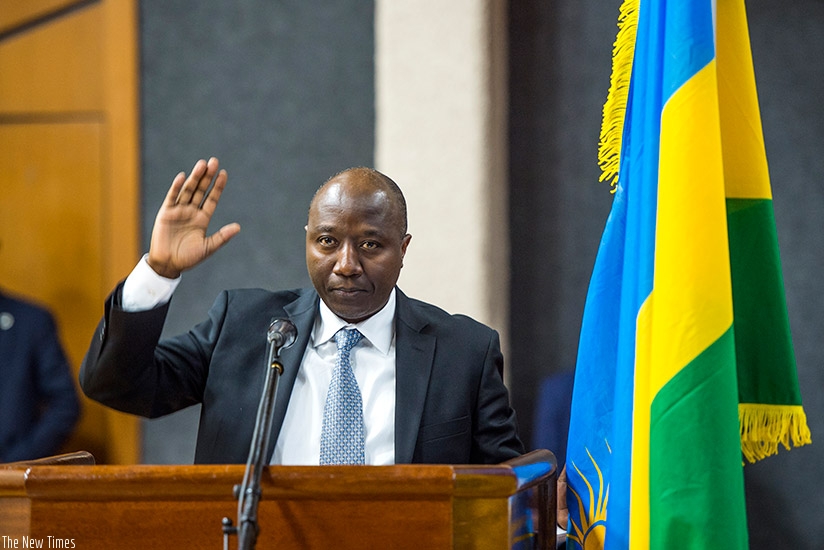President Paul Kagame on Wednesday appointed Edouard Ngirente as the new Prime Minister. Ngirente, 44, was sworn shortly after his appointment. He is the 6th Prime minister since post Genocide Rwanda.


President Paul Kagame on Wednesday appointed Edouard Ngirente as the new Prime Minister.
Ngirente, 44, was sworn shortly after his appointment.
He is the 6th Prime minister since post Genocide Rwanda.
While Ngirente had worked with and for government before, immediately after his appointment, many Rwandans were wondering who he is and what his background is like.
Prior to his appointment as Prime Minister, Ngirente was working with the World Bank Group in Washington D.C.
He joined the World Bank six years ago as an Advisor to the Executive Director in charge of 20 African countries. He was promoted to senior advisor this year.
Before joining the World Bank, he worked in a couple of senior positions with the Ministry of Finance and Economic Planning.
Ngirente holds a PhD in Agricultural Economics from the Catholic University of Louvain (UCL) in Belgium.
He also has two post-graduate degrees. One in Financial Risk Management from Facultés Universitaires Saint-Louis of Brussels and another in Agriculture Economics from UCL. He completed his undergraduate at the National University of Rwanda (now University of Rwanda) where he later worked as a faculty member.
Ngirente, who is married with two children, was born in Gakenke district of the Northern Province. He did his elementary and high school in the Northern Province as well.
The Office of the Prime Minister has the general responsibility of coordinating government action and monitoring the implementation of Government policies and programmes.
Specifically, the Office of the Prime Minister is responsible for coordinating the national policies and development programmes, monitoring and evaluating the implementation of national policies and programs; as well as overseeing the functioning of Government's institutions.


